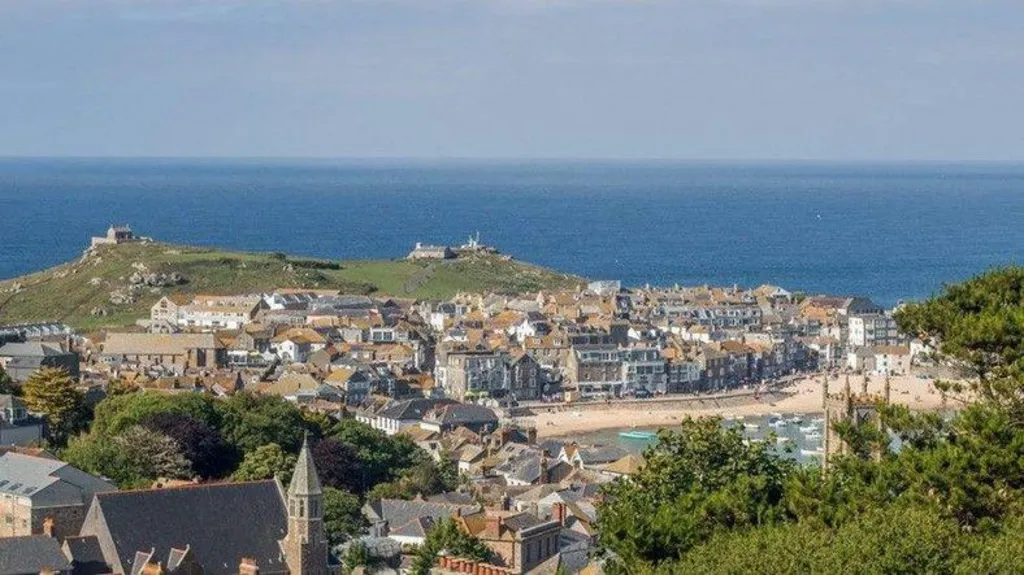
Controversial carbon capture plans in west Cornwall have been scrapped, it has been confirmed.
The Planetary Technologies team wanted to release magnesium hydroxide into St Ives Bay and monitor how the chemical affected ocean acidity and carbon dioxide levels.
However, some people opposed the idea and the impact on wildlife and the environment.
On Wednesday, the company said the "scale-up of operations in Cornwall has been assessed as commercially unviable and we will not be pursuing a wider programme in the region."

The Planetary Technology team from Canada wanted to release Magnesium Hydroxide into St Ives Bay
>> In Other News: CO280 Signs Landmark 3.69 Million Tonne Agreement with Microsoft to Scale-up Carbon Dioxide Removal in the US Pulp and Paper Industry
'Deeply grateful'
On the company's website it said: "We worked with local utility South West Water and proposed the addition of a diluted form of the mineral magnesium hydroxide to the existing water flow at the water treatment plant in Hayle.
The company said adding the alkaline compound to the sea would help counter ocean acidity caused by climate change.
It said: "Planetary has successfully completed its trial operations in Cornwall, UK, gathering valuable scientific data and insights.
"Although the trial demonstrated great potential, we have decided not to pursue a full programme in Cornwall due to commercial infeasibility."
A spokesperson for Planetary Technologies added: "Cornwall has played a meaningful role in our development, and we are deeply grateful to the local partners, community, and team members who have supported our mission."
'Good common sense'
St Ives MP Andrew George said "more research and robust studies" needed to be carried out before chemicals were released into the environment.
He said: "There remained uncertainty regarding the potential impact of pumping these chemicals on marine wildlife.
"The studies undertaken had not satisfied the Cornwall Carbon Scrutiny Group, in that the baseline data remained incomplete, the control and diffuser sites weren't comparable and the target study species were not present at the time of the trials."
George said the decision was "good common sense for Cornwall, seals, safe seas and local economy".
Subscribe to the newsletter
Daily decarbonization data and news delivered to your inbox
Follow the money flow of climate, technology, and energy investments to uncover new opportunities and jobs.
Latest issues
-
Canada Nickel Just Buried CO₂ Before Mining Even Started
Inside This Issue ⛏️ Canada Nickel And UT Prove Mining Can Fight Climate Change 🛰️ OGCI And Carbon Mapper Team Up To Reduce Methane Emissions From The Oil And Gas Sector 🚛 RNG Continues To Lead As...
-
96% Pure H₂ Found Underground — Now What?
Inside This Issue 🧪 HyTerra's Kansas H₂ Could Power a Historic Industry First 🤝 Prime Minister Carney Secures Ambitious New Partnership With India Focused on Energy, Talent, and Technology Françai...
-
What Do Submarines Have to Do With Hydrogen?
Inside This Issue 🚢 Hyundai Pitches Hydrogen Transport Tied To Canada Submarine Bid 🧱 The LEGO Group Expands Its Portfolio Of Carbon Removal Solutions 🏆 SAF Pioneer LanzaJet Honored With RFA Indus...
Company Announcements
-
OGCI And Carbon Mapper Team Up To Reduce Methane Emissions From The Oil And Gas Sector
OGCI, Carbon Mapper collaboration combines public satellite methane data and science-driven strategy with industry-led engagement. Mitigating methane emissions is one of the fastest and most effec...
-
NEWPORT BEACH, Calif.--(BUSINESS WIRE)--Clean Energy Fuels Corp. (NASDAQ: CLNE), the largest provider of the cleanest fuel for the transportation market, has announced a slew of deals with trucking...
-
MENLO PARK, Calif., March 4, 2026 /PRNewswire/ -- Mainspring Energy Inc. today announced that it has been awarded a contract by the United States Department of the Air Force (DAF) for a pilot progr...
-
Plug Power Welcomes Jose Luis Crespo as Chief Executive Officer
Crespo’s commercial and operational expertise positions Plug for disciplined growth and execution SLINGERLANDS, N.Y., March 03, 2026 (GLOBE NEWSWIRE) -- Plug Power Inc. (NASDAQ: PLUG), a global le...